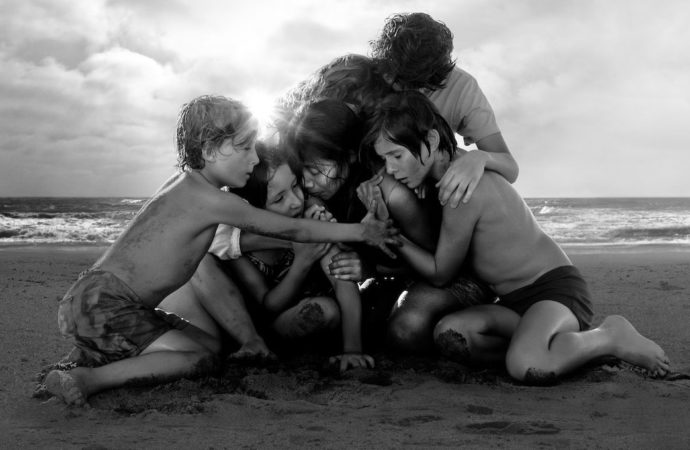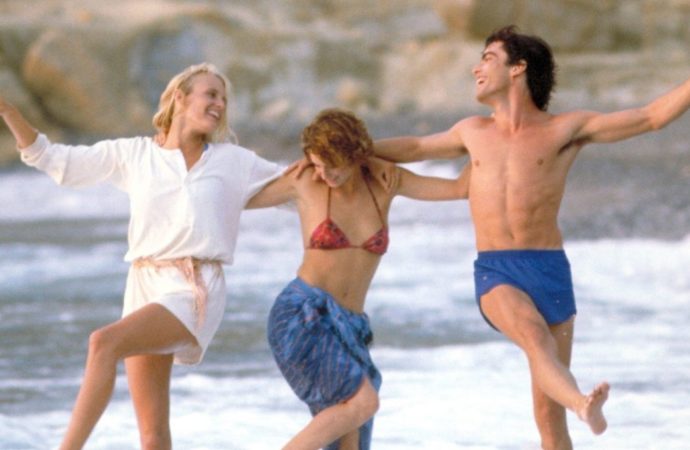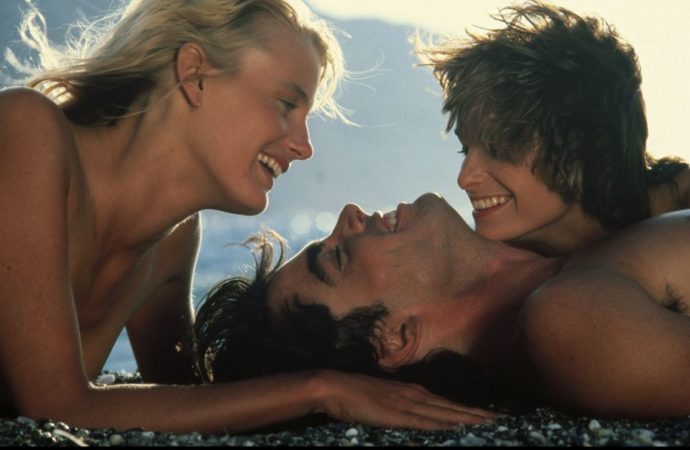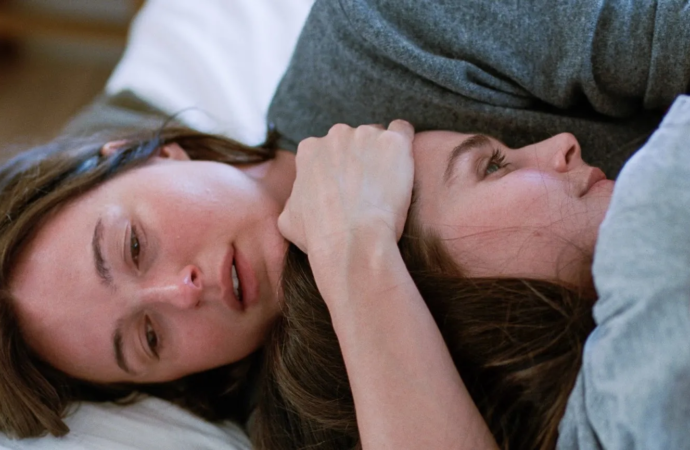Alfonso Cuarón together with Guillermo del Toro and Alejandro González Iñárritu form the trio of filmmakers who put New Mexican Cinema on the international map, conquering Hollywood, but without renouncing their roots. Of the three, Cuarón is the most all-rounder, able to move fluidly between blockbusters like the Harry Potter saga and independent, personal films like Y tu mamá también and Roma.
That versatility has allowed him to move with ease on both sides of the Rio Grande border, combining big-budget films with much smaller, character-driven ones, but always leaving in both his particular stamp, an unmistakable sense of tone and a prodigious visual and technical ability.
The career as a director of Cuarón, who is by far the oldest of the trio of directors, began in Mexico with Solo con tu pareja, a film in which two of his most important collaborators were already involved, his brother Carlos lending him a hand with the script and the indispensable Emmanuel Lubezki as director of photography. The success of that film opened the doors to Hollywood, where he directed the interesting A Little Princess and the irregular Great Expectations, an update of the Charles Dickens classic with Ethan Hawke and Gwyneth Paltrow.
After not being completely satisfied with the latter, he called his brother Carlos to take up an idea they had about their youth and adolescence and return to Mexico to film it, the result of which was Y tu mamá también, the film that inaugurated his period of splendour, from which we will review the five films he has made as a director since then.
Y tu mamá también (2001)
A film that tells much more than it seems. Y tu mamá también was also a road movie about friendship but also about the social reality of Mexico, about social differences, about love, sex and our tremendous fragility. It was an almost art-house film, full of dialogue and with little action, but it was an absolute ode to life and a film that delved into the crisis of masculinity as it was understood in the 20th century.
The chemistry of its starring trio, especially the young Gael García Bernal and Diego Luna, was tremendous and made them both the faces of Mexican cinema in the 21st century. That a film like this, a journey of self-discovery mixed with a social portrait of a country, became the success it was, was a real surprise, but it could be said that Y tu mamá también, along with Amores perros, released a year earlier, were the spearhead of Mexican cinema of their time and the films that took their authors to the elite of Hollywood cinema.
This is the film that marked not only the return to Mexico but also the return of his passion for cinema, along with Lubezki’s naturalistic photography, in a film in which he questioned the class culture that prevailed in Mexico, but also the traditional male role in one of the most macho countries in the world.
Harry Potter and the Prisoner of Azkaban (2004)
After the success of Y tú mamá también, Cuarón was again sought after by Hollywood, but when he was approached to direct the third part of the Harry Potter saga, he didn’t take it seriously until he mentioned it to Guillermo Del Toro. His friend reproached him for being a bit of a snob and asked if he had read JK Rowling’s books. Cuarón hadn’t, so he went to the bookshop and got hold of all the volumes published up to that point, suddenly found himself interested in that world and decided to accept the offer, convinced that he could contribute something.
The only film he directed, Harry Potter and the Prisoner of Azkaban, was the definitive revival of the film saga, managing to give it a visual style of its own, beyond the faithful adaptations of Chris Colombus in the first two instalments. Alfonso Cuarón’s leisurely style can be seen in his ability to stop and let things breathe, even in a children’s mega-production, with the characters stopping to enjoy the landscape or managing to visualise the passing of the seasons with comical interludes, such as the boxing willow.
The director manages to create a visual world that is almost touchable, with a much more accomplished style. He also set the themes that were to be reflected in the film series, being the first to leave out anything that wasn’t told from Harry’s point of view. It is the favourite of most fans of the well-known saga, who consider it to be the most magical of the adaptations.
Children of Men (2006)
P.D. James‘ dystopian novel allowed Alfonso Cuarón to build his own futuristic world in the wake of Lang‘s Metropolis or George Orwell‘s 1984. The plot went something like this: Theo (Clive Owen) is a disenchanted man living in a not too distant future, specifically 2027, where women have stopped having children, a mission, commissioned by his ex-wife (Julianne Moore) will give him a chance to regain his former humanism. Alfonso Cuarón delivers a film that works on several levels, creating a humanist work rich in detail, in which the realistic construction of the world is as important to him as the characters. A film in which form and substance go hand in hand and in which Michael Caine once again delivers one of those supporting roles that makes you fall in love.
It is a tough but moving film and, seen in the light of Brexit and a European Union closing its borders in the face of immigration crises, it is also totally topical. One of the great sci-fi films of the 21st century.
Gravity (2013)
Gravity is the perfect example of why the authorship of films belongs to the directors. A rather bad script, full of clichés, became, in the hands of Alfonso Cuarón, an incredible cinematographic experience and one of the few films, after Avatar or Toy Story 3, that knew how to make the most of 3D.
Although it should also be made clear that, despite being a true visual delight, the film was no more than an exercise in style due to an aberrant script, full of holes and cheap sentimentality. It is true that its images are captivating and that Cuarón does his best to sell us his galactic ballet, but this is the weakest of the five films that appear here.
Roma (2018)
After his space journey, Alfonso Cuarón returned to Earth and delivered his most personal and earthly film, confirming himself as one of the most important directors of his time with this work for which he was director, screenwriter and director of photography, effectively replacing Lubezki, proving himself to be a true master in several of the fundamental fields of cinema.
Roma is a lesson in cinema in which every shot counts and dazzles, a personal portrait and, at the same time, a social chronicle of an era and a country, showing itself, in a certain way, as the continuation of the spirit of Y tu mamá también.
Alfonso Cuarón returned this time to his childhood, but instead of focusing on himself, in the manner of a Truffaut in The 400 Blows, he focused on Cleo, the young maid in a middle-class Mexican family whose marriage is falling apart. For this, he cast the unknown and amateurish Yalitza Aparicio, who delivered an extraordinary performance. Cuarón painted a portrait of social class that at times looked in the mirror of Renoir‘s mythical The Rule of the Game, especially at the Christmas party, but still had a soul of its own.
It was precisely that soul that was discovered with that marvellous scene on the beach, which is already in the annals of cinema history, where the film was definitively elevated. But if he succeeded in doing so, it was because he had previously been able to construct it with a portrait that served as a fresco of an era and an intimate portrait of unforgettable characters. Once again demonstrating his mastery of great composition but also of intimate storytelling.









No one has posted any comments yet. Be the first person!